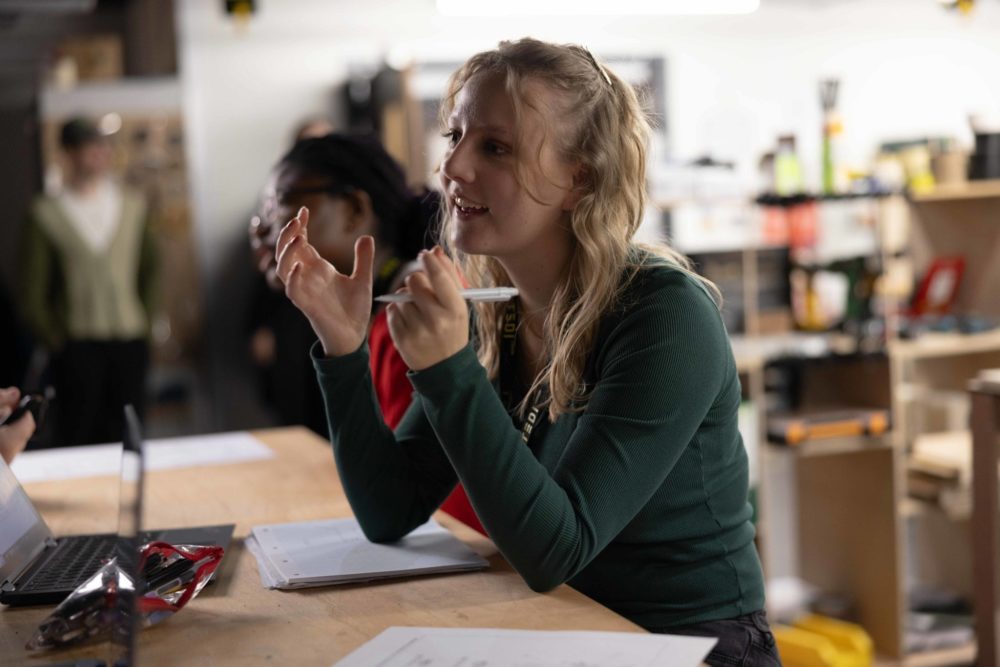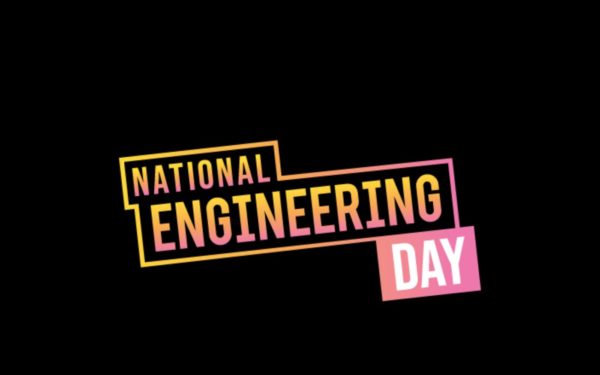
Student blog: Networking tips for engineering students

Melih, a second year student, reflects on how networking has influenced his journey and why building connections early can can open doors down the line.
Networking is a skill that can significantly shape your university experience and future career. As a design engineering student at TEDI-London, I’ve attended numerous networking events, from seminars and showcases to dinners and conferences. I’ve connected with inspiring individuals like Steven Bartlett, academics from top universities like UCL and Imperial College London and professionals from leading companies such as Apple and Shell. These experiences have boosted my confidence and enriched both my professional and social circles. Here are my top tips to help you make meaningful connections:
Finding the right events
Networking opportunities are everywhere if you know where to look. Websites like Bright Network and Young Professionals offer fantastic events like career fairs, employer insights and networking evenings, connecting students directly with industry leaders. You can also explore LinkedIn, Google searches or follow industry related social media accounts to find events aligned with your interests.
Additionally, TEDI-London students have the benefit of membership to KCLSU, allowing us to join numerous societies. They often host events ranging from dinners and workshops to guest lectures and joint activities with other universities like UCL and Imperial. Institutions like IET also offer exclusive student events, creating more avenues for meeting industry professionals. Attending these events further broaden my network, introduce diverse perspectives and lead to exciting opportunities for collaboration.
Preparing ahead of time
Before attending any networking event, spend some time researching. Know who will be attending, understand their backgrounds and prepare thoughtful questions. For company representatives, explore recent projects or innovations. Being well-prepared makes interactions smoother, helps leave a positive impression and demonstrates genuine interest. Also, preparing some questions in advance can prevent awkward silences and helps keep the conversation engaging. Questions such as, “What’s the most exciting project you’re currently working on?” or “What advice would you give to someone looking to join your industry?” can spark meaningful discussions.
Building your confidence
It’s normal to feel nervous before networking. To ease your anxiety, consider bringing a friend or a course mate to events. Arriving early can help as it gives you time to settle in and familiarise yourself with the environment. Remember, most attendees are in the same position as you – looking to connect and likely feeling just as nervous. Another confidence booster is reminding yourself of previous positive experiences you’ve had. Reflecting on successful conversations can help reinforce your self-belief and encourage you to confidently approach others.
Mastering first impressions
First impressions matter. When introducing yourself, maintain eye contact, smile and clearly state your name and area of study or interest. A simple, friendly opening like, “Hi, I’m …, and I’m studying Design Engineering. It’s great to meet you,” can be highly effective. Active listening also plays a huge role – show genuine interest by asking questions based on what the other person shares. Also, remember small details and use them later in your conversation or follow-up messages. This demonstrates genuine interest and leaves a lasting impression. Don’t hesitate to introduce topics related to your personal interests or hobbies. These often lead to more engaging conversations and genuine connections.
Networking doesn’t stop when the event ends. LinkedIn is a powerful tool for maintaining and expanding connections. Always follow up by sending personalised connection requests shortly after meeting someone. Include a brief message referencing your conversation. Regularly engaging with their content or sharing your insights online helps keep you visible and top-of- mind.
Maintaining connections
Networking is about building lasting relationships. After initial interactions, keep the conversation going. Send follow-up messages mentioning something specific from your conversation, ask for advice or suggest meeting again at future events. Thoughtful gestures like congratulating connections on career milestones or sharing relevant articles show genuine interest and care. It’s also beneficial to periodically check in, even without specific news or events, to maintain a consistent connection and reinforce your genuine interest in the relationship. Try to build connections across a variety of industries and levels of experience. Engaging with a diverse range of people, from peers and recent graduates to experienced professionals and industry leaders, can offer fresh perspectives and broaden your opportunities.
Being authentic
Always be yourself – people appreciate authenticity. Genuine conversations often lead to stronger, more meaningful connections. Don’t feel pressured to fit into a specific mould; instead, embrace your interests, experiences and passions. This authenticity makes your interactions memorable and enjoyable. Authenticity can also help you stand out positively, making it easier for others to recall your conversation and fostering deeper connections that extend beyond professional topics.
Embracing risks
Don’t shy away from approaching groups or individuals you don’t know. Taking risks and stepping out of your comfort zone is essential for growth. What’s the worst that could happen? More often than not, you’ll find that people are welcoming and eager to engage. If approaching groups feels intimidating, try identifying smaller groups or individuals who appear approachable. Practising this regularly builds resilience and makes future networking interactions less daunting. Confidence develops over time as you gain more exposure and practice, especially by regularly putting yourself in unfamiliar situations. The more you put yourself out there, the more natural and rewarding networking starts to feel.
Learn more about what the student experience is like at TEDI-London.
More News articles


Join our academic team to shape the future of engineering education
